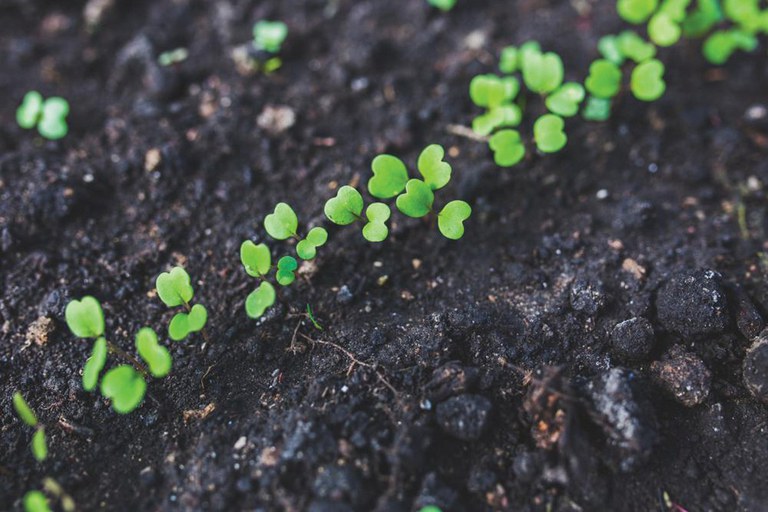Posted: March 17, 2022
Salt and nitrogen make rebuilding soil microbiomes in high tunnels a challenge.
The use of high tunnels to grow plants allows farmers to better control growing conditions and even extend the growing season, yet the difficulty in replenishing a healthy soil microbiome presents challenges. Researchers in the college have found that the presence of high salt and nitrogen concentrations in high-tunnel soils may be the culprit.
Their research findings have important implications for soil fertility, and by extension, crop health and yield, explained Laura Kaminsky, a doctoral candidate in plant pathology who led the investigation under the guidance of Terrence Bell, assistant professor of phytobiomes.
The experiments specifically looked at whether high soil salinity and high soil nitrogen concentrations--two soil properties that often develop under high tunnels over time--altered soil microbiome development.
To do that, the researchers buried small nylon mesh bags containing unsterilized "source" soil in sterilized "recipient" soil and left them to incubate for seven weeks. This allowed microbes to colonize out into the recipient soil, simulating how microbes from soil surrounding a cleared-soil area would colonize back into the cleared soil over time.
Recipient soils were amended with salt, nitrogen, both, or neither to determine whether these properties impacted the microbial communities' composition in the recipient soil. The team sampled the recipient soil at two time points: one week and seven weeks of incubation.
In the recipient soils with salt and nitrogen added, the accumulation of biomass and bacterial diversity was significantly constrained relative to recipient soils with no additives. That is, higher soil salinity and higher soil nitrogen delayed the reestablishment of a diverse soil microbiome.
The findings, published in Environmental Microbiology, suggest that factors such as nutrient and salt accumulation, which can be particularly problematic in high-tunnel systems, can be important in determining which colonizing microbes survive. --Amy Duke
Features
Breaking the Silence on Farm Stress
Farming has always been a demanding profession, but today's farmers face unprecedented pressures that can severely impact their mental health.
Biting Back
Research Targets Vector-Borne Diseases to Save Lives
Leading Forward
Ott brings deep connection to role of dean.



